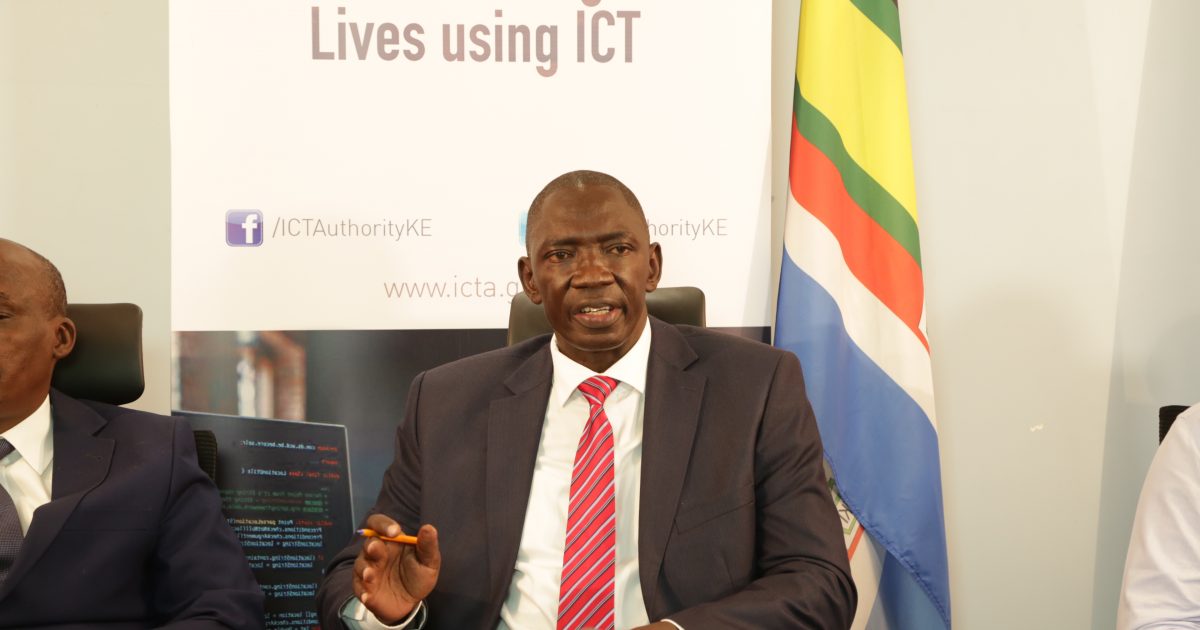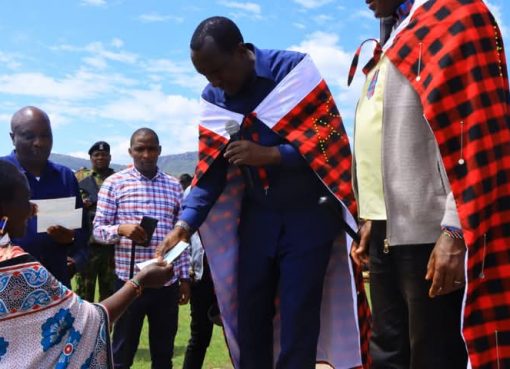The government is putting in place a policy that will protect children using internet from getting exposed to unnecessary materials and content.
The Ag. Chief Executive Officer ICT Authority Dr. Kipronoh Ronoh noted that as government equips young learners with ICT technology at the basic level through the Digital Literacy Programme (DLP), it is necessary for parents to take their responsibility in society by ensuring that their children do not access unnecessary content.
Ronoh said the government has to date distributed at least 1.2 million DLP devices to primary schools for use by pupils in grade 1-3 across the country, a programme whose objective was to equip the young learners with skills that could propel the economy.
“Imparting skills to the young learners is vital since the future jobs requires people to have knowledge in ICT. It will also make the children be at par with the rest of the world and enable them compete competitively,” said Dr. Ronoh.
The Digital Literacy programme which was initiated in 2016 has four components which include training of teachers in DLP programme, creating content for the learners, electrification of schools by Kenya Power and Lighting Company and issuance of DLP devices to schools.
He said the Teachers Service Commission (TSC) has trained teachers on DLP and stated that according to the monitoring and evaluation exercise conducted recently, over 80 per cent of the DLP devices are used for teaching and learning.
The CEO who was speaking on Monday during the SemaNaSpox programme to discuss the Digital Literacy Programme held at Media Centre, Telposta Towers, Nairobi further announced that ICTA is coming up with a ‘Fit for Purposes’ devices for both learners and parents which will be manufactured in Phase II for grade 1 to 6 for purposes of creativity.
Rono said “We are happy that Moi University and Jomo Kenyatta University of Agriculture and Technology manufacture assemble at least 12,000 devices daily to sell to members of the public,” terming it a technology that will spur the economy of Kenya to industrialization.
He also announced that the new devices would be fitted with a special gadget that can track the DLP devices when stolen.
The CEO at the same time stated that the Authority in collaboration with Kenya Power and Lighting Company, UNICEF and other government agencies has come up with a programme that would allow those using the devices to download content through affordable internet.
Speaking at the event, the Government Spokesperson Col. (Rtd) Cyrus Oguna called on Kenyans to support the DLP programme as it enhances learning for the children and provides them with skills that will enable them to compete competitively with others across the globe.
“The government wants all learners to benefit and enjoy the Digital Learning Programme, your support will make Kenya to continue to be on the lead in Africa in ICT,” said Oguna.
He at the same time urged parents to supervise the content their children visit online while at home and to provide the necessary guidance to avoid them falling prey to irresponsible behaviour.
The Spokesperson said the government is rolling out ICT technology and linking it digitally to other sectors among them health, finance and education as it is an enabler in economic growth and prosperity of the country.
Senior Deputy Director Media and Extension Services, Kenya Institute of Curriculum Development Mr. John Kimotho said the provision for online content for DLP device for grade five was in process while that of grade six would be loaded on the device by December this year.
Director Quality Assurance and Standards from the Teachers Service Commission Reuben Ndambuki said the Competency Based Curriculum (CBC) rolled out by the government required that each learner should have the digital literacy skills, a move that has necessitated TSC to train teachers on DLP to enable them handle both CBC and the digital programmes.
“Every teacher teaching CBC must know how to teach using ICT. We have trained them on remote learning methodologies which they can use during an epidemic like Covid. We have also trained them on how to download material to enhance learning,” said Ndambuki.
Deputy Director Coordinator Digital Literacy Programme, Ministry of Education Martin Kungamia who was among the panelists said the government through the ministry has released funds to at least 2,000 schools to improve on the DLP infrastructures and classrooms.
“I encourage communities to be part and parcel of the school property as this will ensure security for all and no DLP gadgets will be stolen,” he urged.
Mr. Simon Kamau from Kenya Power and Lighting Company said the company has supported the connection of internet through the Rural Digitization Programme in at least 22, 927 institutions of which 19, 042 primary schools have been connected to power grid and solar grid.
“We are determined to ensure that schools that have been connected continue to have consistent supply to enable them use digital learning,” he said.
By Bernadette Khaduli




